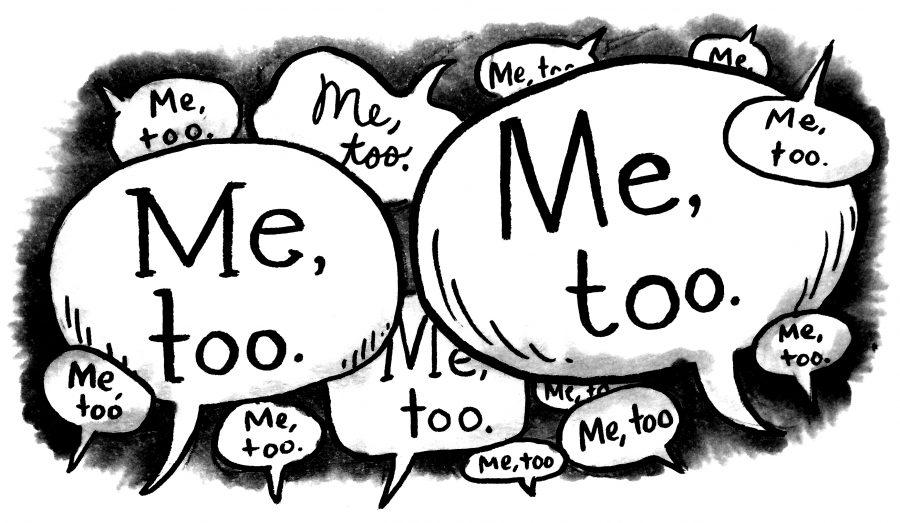When it happened to me at work, I wondered what the hell I had done wrong.
On my first day, an older attorney who shares office space with us made a joke about me stripping off my clothes. The comment itself involved gestures, a creepy attempt at a fatherly laugh and a wave of the hand, as if to say “I’m just joshin’ ya.”
Malicious or not, the comment was followed by an uncomfortable round of interactions where my new haircut was fondled, my smile was commented on, and I was repeatedly called sweetheart.
For seven years, I took classes specifically focused on women’s rights and professional development. Just this summer, I took a management class where I had to memorize legal definitions of sexual harassment and how to deal with it in the workplace.
If anyone has the tools to deal with workplace sexual harassment, it’s me.
But it took three different interactions with the man, and hours on the phone with my mom before I could bring myself to “rat him out.” I felt guilty for bringing it up at all because I didn’t want to make trouble or hurt our office’s working environment.
I finally told one of my bosses he was making me uncomfortable. I know she must have said something, because ever since then the man has treated me like toxic waste. Four months later and we are just now back on nodding hello in the hallway terms.
I’ve heard men who are my peers and friends complain about how hard it is to know how to treat women these days. In one conversation, someone said that they wouldn’t even help a girl who was drunk, because they were too worried about being accused of sexual assault later.
But from where I’m standing, it doesn’t seem all that complicated.
When it happened to me in my own friend group, nothing could have prepared me for how complicated it was to navigate the fallout. A man who had been my friend got blackout drunk at a party, backed me against a counter, leered down my dress, and when I finally got him to go away, smacked me on my behind. I wasn’t the only woman at that party he treated that way.
Just two weeks later another male friend who knew all the details of what happened initially told me he understood and wanted to make sure I was okay. But then he spent our next half hour together telling me how sad he was that my discomfort seeing the perpetrator meant he couldn’t invite the guy to his birthday party.
What could I say? How could I assert my own feelings in the face of his obvious distress and still be a good friend? I told my friend I was fine, go ahead and invite the guy.
I initially didn’t participate in the “me too” campaign because I didn’t want to air my personal business. But I’m realizing now that it isn’t just personal anymore. It’s endemic.
When I shared the party incident with my mom and her friends, one of them said “Wow, things have really gotten better than when I was in college if that’s considered inappropriate behavior these days.”
Like many other women, these are not the only stories I could tell about instances of sexual harassment and assault. I’ve heard stories that gave me chills, and ones that made me cry.
Now the only thing left to say is Me too. Me too. Me too.
MacLean is an advertising and geography junior from Austin. She is a senior columnist Follow her on Twitter @maclean_josie.





















